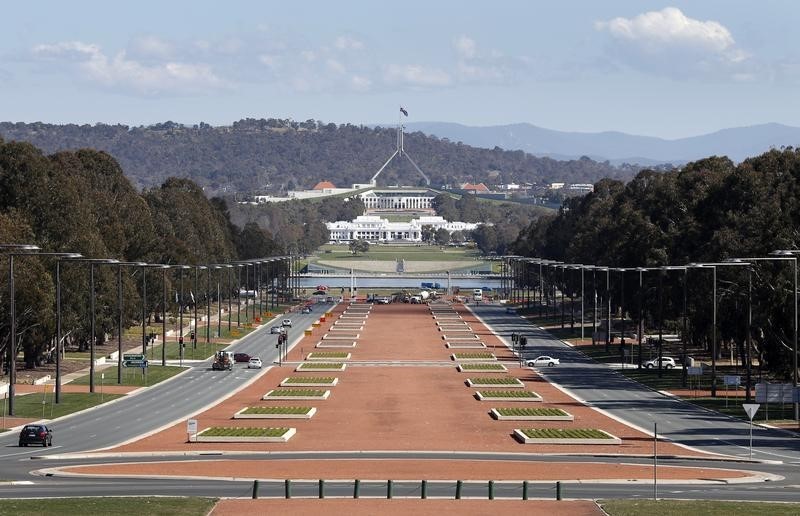By Kirsty Needham
SYDNEY (Reuters) - Australia will draw up a list of critical and emerging technologies that are subject to restrictions on foreign research collaboration, a parliament intelligence committee heard on Thursday.
Security agencies already screen international collaboration on military or dual-use technologies done by universities but in a review led by the Prime Minister's office and home affairs, other emerging technologies that present an economic risk will be identified.
The director general of the Australian Security Intelligence Organisation (ASIO), Mike Burgess, said it was a departure from past practice that economic competition was being considered in a national interest assessment.
"Global circumstances are driving us in that direction but that does not mean to say that we want to become totally protectionist as a nation," he told the parliament's intelligence and security committee.
The committee is holding an enquiry into national security risks to universities, and many submissions have focussed on China, where a large number of students come from.
Burgess said hosting international students was important for Australia's economy and for diversity of thought at universities.
ASIO investigated covert attempts by foreign states to obtain Australian intellectual property and the security agency had 60 interactions with universities last year, he said.
Burgess said China had been open about its ambition in technology research and its Thousand Talents Program, to recruit people familiar with foreign technology and intellectual property, was "in of itself not concerning".
"It is a natural extension of China's strategic plan to become a world leader in technology and secure their economic and military advantage," he said.
In the United States, several researchers at universities and NASA have been charged by the U.S. Department of Justice with lying about their involvement in the Thousand Talents Program.
The United States adopted a law to identify and limit the sharing of critical and emerging technologies with China in 2018.
Burgess did not identify China but said one foreign state had been highly active in its interference attempts in Australia, including cyber intrusions.
Burgess said he was in regular discussion with the Five Eyes intelligence counterparts, which include the United States, Canada, Britain and New Zealand, as well as other allies, who shared the same concerns on foreign interference as Australia.
In a written submission, ASIO described researchers and their families being threatened by actors seeking to have sensitive research provided to a foreign state.
